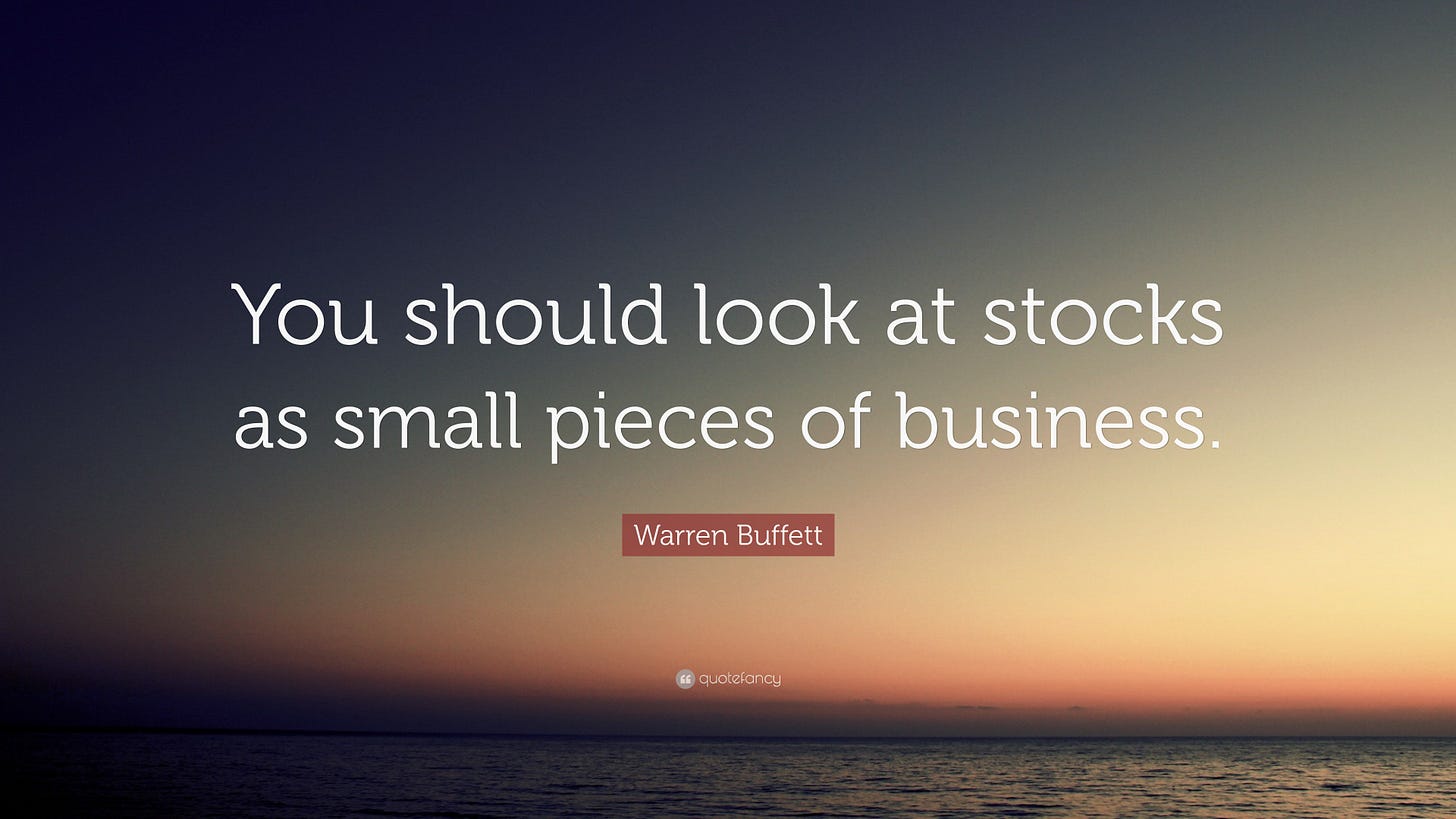Stock Market 101: What Is a Stock and Why Does It Go Up & Down?
Everything you need to know about the stock market!
Hello Readers,
Stock Market 101: What Is a Stock and Why Does It Go Up & Down?
Did you know that historically, the stock market has been the most effective way for average people to build wealth? Despite what you might hear, it's not just for the rich or Wall Street insiders. The stock market is often misunderstood. Many people believe things like:
"The stock market is rigged."
"Wall Street rips off common investors."
"The stock market is just a place for the wealthy."
These perceptions exist because investing can seem complex and intimidating, especially when headlines focus on market crashes, insider trading, or billionaires making millions overnight. But at its core, the stock market is a powerful tool that allows individuals to grow their wealth over time, if they understand how it works.
I have achieved a CAGR (Compound Annual Growth Rate) > 40% since I started investing. It is really hard to keep up with that growth rate in the long term, but I believe with a disciplined investing approach, my goal is to beat the market by 2%-3% on annual basis.
What Is the Stock Market?
The stock market is a marketplace where buyers and sellers trade shares of publicly listed companies. It operates through major exchanges like NYSE & NASDAQ.
Brokerage firms like Charles Schwab, Fidelity, and Interactive Brokers provide access to these markets, allowing individuals to buy and sell stocks with ease. While some believe the market favors insiders, history shows that long-term, disciplined investors can achieve significant wealth through the stock market.
What Is a Stock? (Explained Through a Coffee Shop)
Imagine you and a friend starting a coffee shop. Initially, both of you split ownership 50/50. As the business grows, you realize you need more money to expand. Instead of taking out a loan, you decide to sell shares in the company.
Let’s say your coffee shop is valued at $100,000, and you decide to issue 1,000 shares. Each share represents 0.1% ownership in the business. If an investor buys 100 shares, they now own 10% of your company.
This is exactly how publicly traded companies work. Companies issue stocks to raise capital for growth, and in return, investors get a share of the business and potential profits.
Companies can use the profits to do multiple things, including reinvesting in the business if they see a great opportunity or decide to share it with the shareholders in the form of dividends.
Important to remember that when you are purchasing a stock, you are purchasing a part of the business. Warren Buffett put it the best:
Why Do Stock Prices Go Up & Down?
Stock prices fluctuate due to supply and demand. If more investors want to buy a stock than sell it, the price goes up. If more want to sell than buy, the price goes down. But what drives this demand?
Company Performance: If a company reports strong earnings, launches a successful product, or expands into new markets, its stock price often rises. Poor earnings or scandals can have the opposite effect.
Market Sentiment: Investor emotions play a huge role. Optimism drives prices up (bull markets), while fear drives them down (bear markets).
Economic Conditions: Interest rates, inflation, and overall economic growth impact stock prices. When the economy is strong, businesses thrive, and stocks tend to rise.
Industry Trends: A shift in consumer behavior, technological advancements, or government regulations can affect specific sectors. For example, renewable energy stocks gained popularity as the world shifted toward sustainability.
Speculation & News: Sometimes, hype can drive stock prices up even if the fundamentals don’t support it.
Why the Stock Market Is the Best Wealth Creation Machine
Despite short-term volatility, the stock market has been the most consistent wealth-building tool for individuals over time. Here’s a quick example:
Let's say a fictitious person Arnold started investing in 401K when he started his career, and he put $500/month into the stock market. He completely forgot about his 401K. He did not even bother to check his statements. After 40 years of working, he took a look at his 401K balance. Guess how much he has in his account: $3,791,909.
Arnold was shocked, his $500/month only amounted to $452K, where did the additional $3.34M come from?
The answer is the greatest wealth-creation machine of all time: the Stock Market. Here are some reasons how the money grew:
Compounding Growth: Investing in the stock market allows your money to grow exponentially over decades. As Charlie Munger sums it up well:
Tax-Free: No taxes are imposed if the money is not bothered.
Accessibility: Anyone can invest with as little as a few dollars today, thanks to commission-free brokers.
Ownership in Great Businesses: By investing in stocks, you become a part-owner of companies shaping the world.
Beating Inflation: Stocks have historically outperformed inflation, ensuring that your wealth maintains and grows in value.
Final Thoughts
The stock market isn’t a casino, it’s a platform for disciplined investors to build wealth. By understanding what a stock is, why prices move, and why investing is powerful, you’ll be well on your way to making informed financial decisions.
In future posts, I’ll dive deeper into how to analyze stocks, value companies, key metrics to look for, and how to build a solid investment strategy. If you found this helpful, subscribe and share with friends and family who want to learn more about investing!
Disclaimer: This post is for educational purposes only and should not be considered financial advice. Always do your own research before making investment decisions.










Very helpful post for beginners